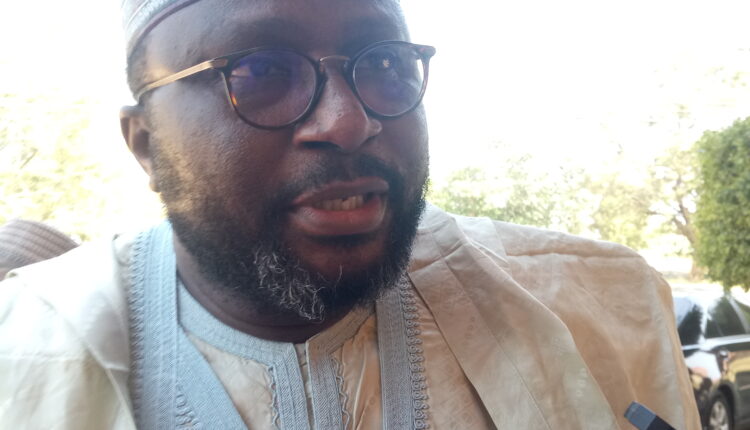Tertiary Education; Strike is not an end to itself -ARNU Chairman
|
Getting your Trinity Audio player ready...
|
At the ongoing 17th Retreat and 72nd Business Meeting of the Association of Registrars of Nigerian Universities, (ARNU), hosted by Nasarawa State University, Keffi, Apex News Exclusive meets Dr. Abubakar Mamuda, Chairman ARNU who is also Registrar of Federal University Gashua, in Yobe State on a side line for a brief chat. Dr. Mamuda talks about the objectives of ARNU and topical issues on the mind of the organization, including the incessant strike actions. He spoke to Samuel Torlumun. Excerpt
Tell us about your organization, the Association of Registrars of Nigerian Universities, ARNU?

ARNU is the umbrella body for all Registrar of Nigerian universities and inter university centers. The main objective of our association is to promote and sustain all sound ethical and best practices of tertiary education in the Nigerian universities. And also, contribute to the development of tertiary education in Nigeria and to sustain and build relationships within the management of Nigerian Universities. So, that is basically the aim of the association. And what we are doing today is a yearly thing. We do retreats, every year. We go to universities across the country; the north, southwest, South East, and all parts of Nigeria. We have universities host us and we deliberate on topical issues affecting university administration in Nigeria. We try as much as possible to proffer solutions to this challenges. As you are aware the challenges facing Nigerian tertiary education are enormous. As you know, only strike alone is one is a big challenge not to talk of the challenge of running the universities the way they are. So, there is need for us to brainstorm and come up with solutions to our problems. How do we avoid strikes; How do we do fiscal development, how do we stop brain drain and so on and so forth. So part of our objectives is to address these issues.
How would you, as a body address the seemingly issues of friction between Registrars and VCs?
Generally, the vice chancellor is the head of the institution, the registrar is his chief of administration who tries as much as possible to work with the vice chancellor and support him in delivering on the goals of the university and the VC’s strategic plan. So Registrars are custodians of the laws of the university. And that the registrar does is to help the VC in the interpretation of these laws and the governing organs of the university. So, usually, once everybody stands on his roles, (because everyone of them have their roles) you will find out that there will be no problems. It is only when there are issues within the university on encroachment in roles, that you find out there is a problem between the VC and Registrar. And at times VC can be very overbearing. So I think those kind of things do create problems. If you don’t have the capacity to work as a team, usually there will be a problem. But we as Registrars of the university are trained to support the VCs. We give them the necessary supports, but everybody should know his boundary.
The just ended nationwide strike by ASUU and other unions in the university has impacted negatively on the entire university system in Nigeria. What is your personal take on this?
I want to say that the last strike by all the four unions not only ASUU has actually affected the system. Strikes on their own are not solutions to the problem. They are not the end by themselves. They are supposed to be the means to get government to do something. And we know that there are agitations with the universities. These agitations are genuine. Look at revitalizations of universities for instance. At times when you go our lecture hall, they are overcrowded. There are agitations that the founders of these universities should do the needful. These are reasons why the strikes are going on in the country and they have affected even the quality of education in the country. So as the ivory tower, the think tank of the nation, it is high time we find other solutions other than strike to address most of these problems.


